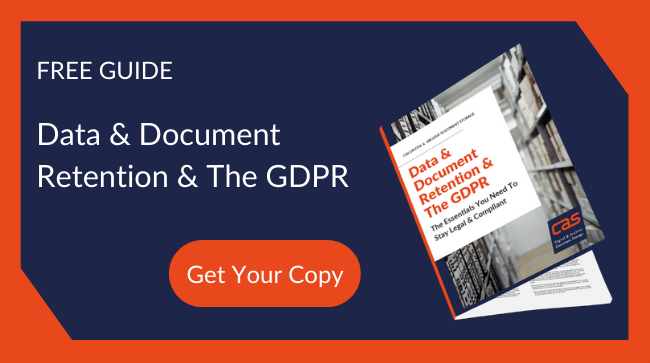Universities generate invoices, assessments, student records, minutes, and ephemera just as quickly as any other business or charity. Once these assorted documents have served their day-to-day purposes, they become known as records.
Records are accessed after their archival for a number of reasons, from academic research to performance monitoring. However, most universities simply don't have space and resources to retain and track everything created forever. An effective and efficient university needs a Record Retention Schedule to make sure that data is protected, retrievable, and (when appropriate) erasable.
How Does A University Record Retention Schedule Work?
A University Record Retention Schedule (or RRS) is a policy document that categorizes records into headings and outlines how long they should be kept for before they can be safely archived or destroyed. A University RRS should detail where each record will be stored (including an exact physical location) if it will be scanned and digitized, and how it will be accessed. Fixed record destruction dates can be set for each year's output.
A working University RRS typically constitutes a long list of documents likely to be produced in the next year. An RRS Officer for each department or category should be tasked with ensuring compliance. As each university has different priorities, outputs, and ways of working, the RRS should be written to the needs of your institution.
Why Do Universities Need A Record Retention Scheme?
Academic documents are retained past their point of active use for three reasons: legal requirements, corporate use, or for analysis by auditors. A Record Retention Scheme makes sure that employees and students have a fixed, understandable reference for what they should do with documents that are no longer needed. A good RRS keeps your university running legally and efficiently and ensures your gathered data is protected and processed correctly via a solid, easy-to-understand ruleset.
Record Retention With CAS Ltd.
CAS are used to working with schools, universities, and libraries to provide academic data storage, retrieval, and set-date disposal plans.
Whatever the size of your institution, we've got the know-how to deliver the document lifecycle plans you need to keep your place of learning running smoothly.
Contact us today via phone or email to find out more.
Image source: Unsplash

